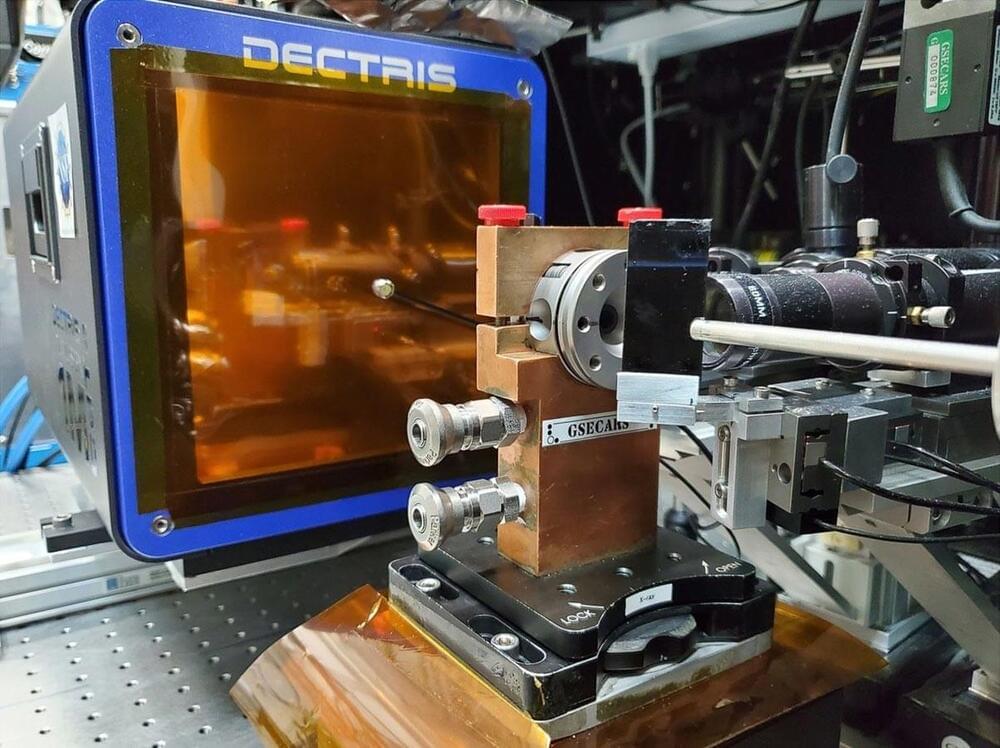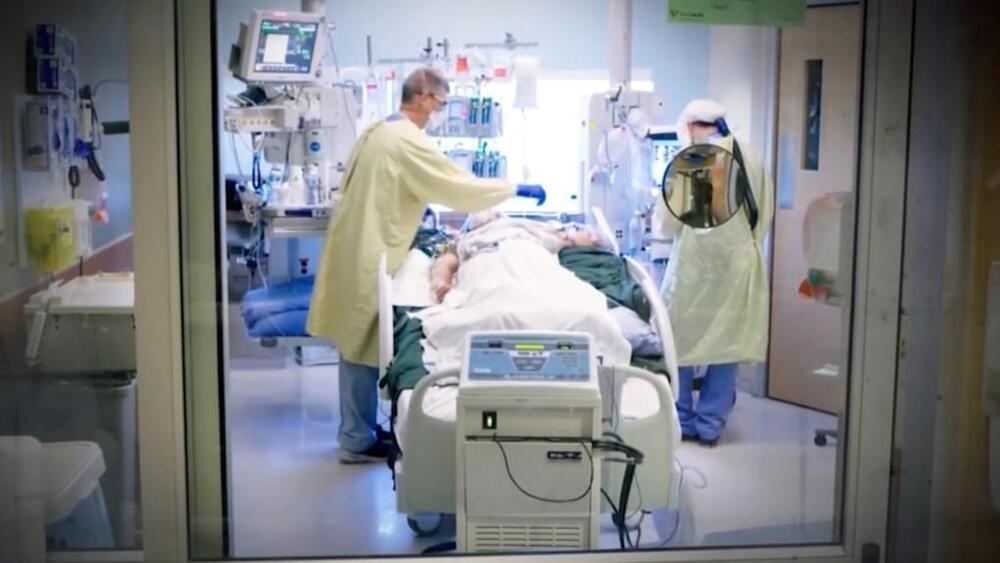We have developed an absolute radiometer to measure laser power by means of radiation pressure in a closed control-loop configuration using diamagnetically levitated pyrolytic graphite as the soft spring and gravity as a contactless restoring force. Our approach takes advantage of an extremely low spring stiffness (2.95 mN/m) afforded by diamagnetic levitation above a permanent magnet array and a lock-in amplifier in the feedback loop to attain a 30mWrms noise. A horizontally directed laser beam impinges on a highly reflective dielectric stack mirror mounted on the levitating pyrolytic graphite shuttle. The light’s momentum displaces the shuttle, and its position is restored by tilting the magnet array with a piezoelectric actuator. The closed-loop configuration avoids the need for accurate knowledge of the system spring stiffness or environmental dependencies of the diamagnetic levitation. Absolute laser power measured is traceable to the mass of the diamagnetically levitating shuttle system, the local gravitational acceleration, and the interferometrically measured tilt angle of the magnet array. The system is demonstrated with a laser power of 2.7 W, yielding a combined relative expanded uncertainty (k=2) of 1.9%. The upper limit of measurable power is determined by the range of the piezoelectric actuator, and the minimum power is currently limited by the noise floor that is constrained by air currents.
Using the Advanced Photon Source, scientists have recreated the structure of ice formed at the center of planets like Neptune.
Neptune is the farthest planet from the sun. In our solar system, it is the fourth-largest planet by size, and third densest. It is named after the Roman god of the sea.
The discovery demonstrates a practical method to overcome current challenges in the manufacture of indium gallium nitride (InGaN) LEDs with considerably higher indium concentration, through the formation of quantum dots that emit long-wavelength light. The researchers have uncovered a new way t.
A type of group-III element nitride-based light-emitting diode (LED), indium gallium nitride (InGaN) LEDs were first fabricated over two decades ago in the 90s, and have since evolved to become ever smaller while growing increasingly powerful, efficient, and durable. Today, InGaN LEDs can be found across a myriad of industrial and consumer use cases, including signals & optical communication and data storage – and are critical in high-demand consumer applications such as solid state lighting, television sets, laptops, mobile devices, augmented (AR) and virtual reality (VR) solutions.
Ever-growing demand for such electronic devices has driven over two decades of research into achieving higher optical output, reliability, longevity and versatility from semiconductors – leading to the need for LEDs that can emit different colors of light. Traditionally, InGaN material has been used in modern LEDs to generate purple and blue light, with aluminum gallium indium phosphide (AlGaInP) – a different type of semiconductor – used to generate red, orange, and yellow light. This is due to InGaN’s poor performance in the red and amber spectrum caused by a reduction in efficiency as a result of higher levels of indium required.
In addition, such InGaN LEDs with considerably high indium concentrations remain difficult to manufacture using conventional semiconductor structures. As such, the realization of fully solid-state white-light-emitting devices – which require all three primary colors of light – remains an unattained goal.
Saturday on W5: experts warn the next pandemic could come sooner than you think, and that unless changes are made to industrial farming practices worldwide, it could spark a virus more deadly than COVID-19.
Barely-alive creatures, such as the slime mold pictured, are able to produce “memories” — they just store them in their physical surroundings rather than a brain. “A slime mould is not a fungus or mould, but is in fact a protist, which is really the odds and ends of the natural world that don’t fit in with the rest of our taxonomic grouping system,” said PhD student Christopher Reid who led the study.
Is it possible to know where you’ve been when you don’t have a brain? Depending on your definition of “know,” the answer may be yes. Researchers have shown that the slime mold, an organism without anything that resembles a nervous system (or, for that matter, individual cells), is capable of impressive feats of navigation. It can even link food sources in optimally spaced networks. Now, researchers have shown it’s capable of filling its environment with indications of where it has already searched for food, allowing it to “remember” its past efforts and focus its attention on routes it hasn’t explored.
Visible light is extremely important in nature. Seen by the human eye, it is the most intense light emitted by the sun to reach the earth’s surface and is an essential element for fundamental biological processes underlying life. However, it is difficult to generate coherent visible light, like the light of a laser, that is intense for a short amount of time, in the order of the femtosecond.
A research team, directed by Professor Luca Razzari of the Institut national de la recherche scientifique (INRS), has successfully achieved this goal without using a complicated system. The results of their work were recently published in Nature Photonics.
𝙈𝙍𝙄 𝙖𝙣𝙙 𝙐𝙡𝙩𝙧𝙖𝙨𝙤𝙪𝙣𝙙 𝘾𝙖𝙣 𝙎𝙣𝙚𝙖𝙠 𝘾𝙖𝙣𝙘𝙚𝙧 𝘿𝙧𝙪𝙜𝙨 𝙞𝙣𝙩𝙤 𝙩𝙝𝙚 𝘽𝙧𝙖𝙞𝙣 𝙍𝙚𝙨𝙚𝙖𝙧𝙘𝙝𝙚𝙧𝙨 𝙝𝙖𝙫𝙚 𝙙𝙚𝙫𝙚𝙡𝙤𝙥𝙚𝙙 𝙖 𝙩𝙚𝙘𝙝𝙣𝙞𝙦𝙪𝙚 𝙩𝙤 𝙜𝙚𝙩 𝙩𝙧𝙚𝙖𝙩𝙢𝙚𝙣𝙩𝙨 𝙩𝙝𝙧𝙤𝙪𝙜𝙝 𝙩𝙝𝙚 𝙥𝙧𝙤𝙩𝙚𝙘𝙩𝙞𝙫𝙚 𝙗𝙡𝙤𝙤𝙙-𝙗𝙧𝙖𝙞𝙣 𝙗𝙖𝙧𝙧𝙞𝙚𝙧
𝐈𝐧 𝐚 𝐧𝐞𝐰 𝐬𝐭𝐮𝐝𝐲, 𝐫𝐞𝐬𝐞𝐚𝐫𝐜𝐡𝐞𝐫𝐬 t𝐞𝐦𝐩𝐨𝐫𝐚𝐫𝐢𝐥𝐲 𝐦𝐚𝐝𝐞 𝐭𝐡𝐞 𝐛𝐥𝐨𝐨𝐝-𝐛𝐫𝐚𝐢𝐧 𝐦𝐨𝐫𝐞 𝐩𝐞𝐫𝐦𝐞𝐚𝐛𝐥𝐞, 𝐚𝐥𝐥𝐨𝐰𝐢𝐧𝐠 𝐚 𝐦𝐨𝐧𝐨𝐜𝐥𝐨𝐧𝐚𝐥 𝐚𝐧𝐭𝐢𝐛𝐨𝐝𝐲 𝐭𝐨 𝐭𝐚𝐫𝐠𝐞𝐭 𝐜𝐚𝐧𝐜𝐞𝐫 𝐭𝐡𝐚𝐭 𝐡𝐚𝐝 𝐬𝐩𝐫𝐞𝐚𝐝 𝐭𝐨 𝐭𝐡𝐞 𝐛𝐫𝐚𝐢𝐧.
A new way to usher treatments through the protective blood-brain barrier.
The world’s largest semiconductor manufacturers—Intel, Samsung, and the Taiwan Semiconductor Manufacturing Company (TSMC)—have all announced plans to build new chip factories in the US. Everyone is bragging about those plans: American lawmakers say bringing chip manufacturing back onto US soil will strengthen national security, while the chip makers, chastened by this year’s disastrous semiconductor shortage, are diversifying their supply chains to avoid future crises.
But there’s one problem: Who will pay?
Intel, Samsung, and TSMC have all threatened to pull the plug on their US factory plans unless government subsidies are on the table. Company executives claim that if they don’t get a rich package of incentives and tax breaks, they’ll build their semiconductor factories elsewhere, effectively ending American ambitions to return chip manufacturing to its shores after ceding the bulk of the market to Taiwan in the 1990s.
This videoclip is an excerpt of a movie produced by CGTN America entitled “Gene Therapies and the Promise of the Fountain of Youth” which was released in January 2021.
He añadido S/T en Español.








